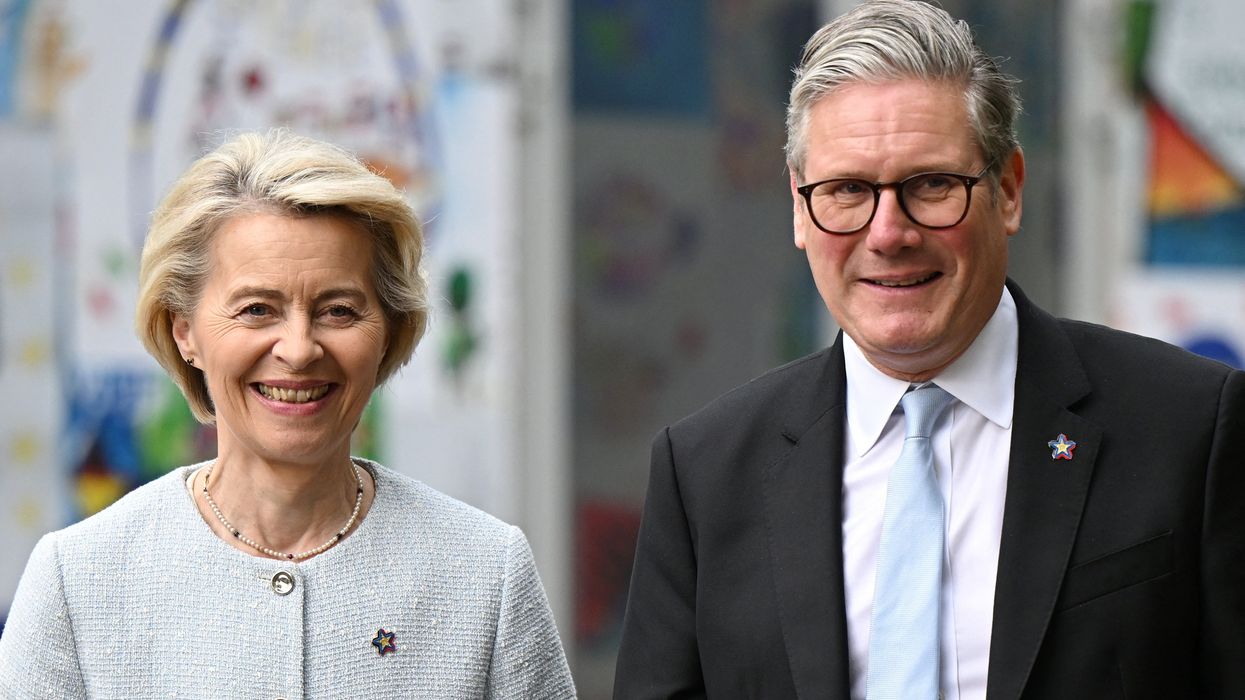PRIME MINISTER Keir Starmer was expected to sign a new agreement with the European Union at a summit in London on Monday, marking the first major step towards closer UK-EU ties since Brexit.
EU and UK negotiators reached agreement on a deal to "reset" their relations post-Brexit, diplomats said, after talks ran into Sunday night to resolve squabbling over key sticking points — with the sensitive matter of fishing rights top of the list.
EU diplomats said member states greenlit a trio of texts to be signed at the summit: a Security and Defence Partnership, a statement of EU-UK solidarity, and a Common Understanding on topics including trade, fishing and youth mobility.
The deal comes after Starmer pushed for a reset in UK-EU relations, arguing that the previous deal negotiated by the Conservative government "isn't working for anyone".
Starmer, who came to power in the July general elections, has stated he will not cross several red lines despite seeking closer cooperation with Europe. Some EU demands had remained unresolved, and the move to reset relations has been criticised by the Conservatives, who have called it a "surrender".
A source close to the talks told AFP there was a "late breakthrough last night (and) still steps to take".
The highlight of the summit between Starmer and EU leaders Ursula von der Leyen, Antonio Costa and Kaja Kallas will be the signing of a "Security and Defence Partnership".
Two other documents are also expected: a joint statement of European solidarity from the EU-UK leaders' summit and a Common Understanding on areas including trade, fishing and youth mobility.
Under the final agreement, Britain will keep its waters open for European fishermen for 12 years after the current deal expires in 2026. In return, the EU will indefinitely ease red tape on food imports from the UK, according to diplomats.
Negotiators also agreed on broad language around youth mobility, leaving detailed discussions for a later stage. The topic remains sensitive, with concerns in London that a youth mobility scheme could be seen as a step back toward freedom of movement between the UK and EU.
Shadow of Russia, Trump
The summit comes amid growing concerns about security in Europe, the threat from Russia, and uncertainty over US support if Donald Trump returns to the White House.
The new defence partnership is expected to enable more regular security discussions, UK participation in EU military missions, and potential access to a 150-billion-euro ($167-billion) EU defence fund.
However, many of the specific terms are still to be negotiated.
Granting the UK’s defence sector full access to EU programmes will require further discussions.
Britain already shares defence ties with 23 EU countries through NATO, making the defence pact one of the easier parts of the agreement to finalise.
"I think we should keep our sense of the importance of this relatively tempered," said Olivia O'Sullivan, director of the UK in the World programme at Chatham House.
"It's the next step in closer cooperation... but not a resolution of many of the outstanding questions," she told AFP.
Starmer has ruled out rejoining the EU customs union and single market, but he appears willing to align with the EU on food and agriculture standards.
Red tape, mobility
"Red tape, all the certifications that are required, we absolutely want to reduce that," said Europe Minister Nick Thomas-Symonds, the UK’s chief negotiator, in an interview with the BBC on Sunday. He said delays at borders were causing food to rot in lorries.
While Starmer has ruled out a return to freedom of movement, he is open to a youth mobility scheme allowing 18- to 30-year-olds from the UK and EU to study and work across both regions.
He is approaching the matter cautiously amid increasing support for Nigel Farage’s Reform UK party, which is opposed to immigration and the EU.
Thomas-Symonds said any such scheme would be "smart and controlled".
He added that the UK is seeking a faster customs lane for British nationals at EU borders.
"We want British people who are going on holiday to be able to go and enjoy their holiday, not be stuck in queues," he said.
(With inputs from agencies)





